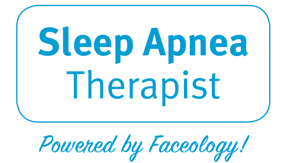You might be surprised to learn that there isn’t really a definitive way to judge sleep quality. Modern medicine relies on sleep studies to diagnose sleep apnea, and these studies definitely are helpful but there are so many other potential causes of bad sleep besides actual sleep apnea.
Pretty much everything we do has the potential to influence the quality of our sleep for better or worse. What we eat and drink, our stress levels, the room we sleep in, how and when we use technology, and a host of other factors all play a role in the sleep equation.
When we don’t sleep well, we notice it because sleep deprivation affects so many parts of our lives. Besides that familiar foggy headed feeling holding us back as we try to get through the day, bad sleep or sleep-disordered breathing of any kind can seriously affect our health, our state of mind and our overall quality of life.
The Frightening Numbers
According to the National Institute of Health, approximately 70 million Americans suffer from a range of sleep problems. Around 60 percent of them are dealing with a chronic disorder, and a surprising number are undiagnosed, which means they’re struggling every day with no clear path to getting the help they need.
That’s an enormous amount of people, which translates into a huge cost, not just financially on the healthcare system’s bottom line but also in terms of the ongoing cost to society. Sleep deprivation has a profound compound effect on things like workplace productivity and accidents but there’s also an impact on people’s quality of life – directly on the individual who isn’t sleeping but also on their family.

The Effects Of Sleep Deprivation
Not getting enough sleep is a much more serious situation than many people imagine. Dr. Mark Burhenne DDS puts it so well in his book, The 8-Hour Sleep Paradox:
“The sleep-disordered breathing crisis is making us exhausted, sick, unhappy and stupid. Sleep-disordered breathing now rivals obesity and smoking as our greatest public health crisis. I believe sleep-disordered breathing will come to be known as one of the biggest global health epidemics of our time.”
Basically, sleep is when we heal our bodies and minds. It’s when we rest and recover from our daily activities. So it follows that sleep deprivation or low quality disturbed sleep can have physical and emotional consequences. It can and does affect both our cognitive abilities and general emotional state. And it can also have a negative impact on the immune system, increasing the risk of developing chronic diseases including heart disease and diabetes.
Quality vs. Quantity
So yes, the quality of your sleep really is that important – in fact, how well you sleep is at least as important as the amount of sleep you get. But getting the best possible sleep involves optimizing your sleep potential by dealing with external circumstances and making sure that there are no actual physical disorders affecting your sleep.
If you suspect that you might be suffering from any kind of sleep-disordered breathing, or if you’re just not sleeping well on a consistent basis, then the first step is to get a diagnosis from your doctor. You’ll probably be referred for a sleep study, which will clarify exactly what’s going on with your breathing when you’re asleep.
Once you’re armed with that information, you’ll be in a much better place to be able to work with your doctor and make some informed decisions. Depending on the nature of the problem, and if you have sleep apnea, you may need a CPAP machine or a dental sleep appliance.
Sleep Exercise Therapy
Whatever your diagnosis, sleep exercise therapy is likely to be able to help.
Research studies show that oral exercises are an effective way to address and help to treat sleep apnea and other airway and breathing-related conditions. This is because in many cases, people who have sleep-related health issues also have weak and improperly functioning oral muscles. They tend to breathe through their mouths during the day and while they sleep at night. Part of my sleep program includes exercises that address mouth breathing, change habits and patterns. This can help to ease symptoms related to sleep apnea and sleep disordered breathing.
My patients are often amazed at how a simple series of exercises can make such a difference but they always do. Here’s an example of one of these exercises:
Sleep Hygiene
It’s important to remember that my programs are about much more than exercises. I also make sure that all the other factors that influence sleep are covered. So over the course of a program, I’ll look at:
- Sleep hygiene, which includes:
- Room preparation – temperature, humidity, light levels, bedding choice, and noise
- Screen and device habits – TV, phone and tablet use
- Night routines – bed time, adequate hours of sleep, establishing ongoing routines
- Allergy control
- Optimizing CPAP and dental sleep appliance use – to increase compliance, comfort and effectiveness
- Relaxation techniques – breathing, meditation, and exercise
- Nutrition for better sleep
Once the big picture of sleep has been addressed, you’ve got the best chance of putting any airway and breathing-related sleep problems behind you.
This can be life changing! I see it all the time in my patients.
If you’d like to find out more about my programs, or would like to schedule a free Skype assessment, please drop me a note on my contact form. I’ll be in touch as soon as I possibly can.
